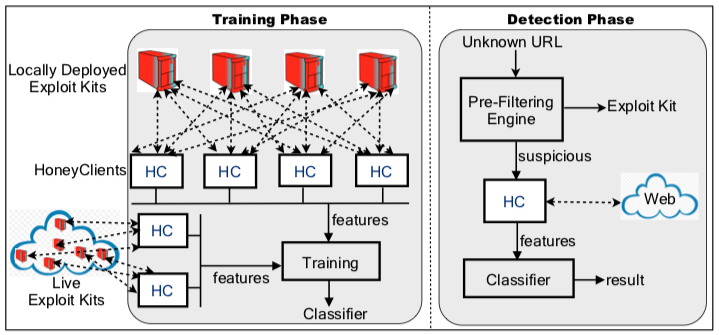 WebWinnow
WebWinnow
Abstract
Organized cybercrime on the Internet is proliferating due to exploit kits. Attacks launched through these kits include drive-by-downloads, spam and denial-of-service. In this paper, we tackle the problem of detecting whether a given URL is hosted by an exploit kit. Through an extensive analysis of the workflows of about 40 different exploit kits, we develop an approach that uses machine learning to detect whether a given URL is hosting an exploit kit. Central to our approach is the design of distinguishing features that are drawn from the analysis of attack-centric and self-defense behaviors of exploit kits. This design is based on observations drawn from exploit kits that we installed in a laboratory setting as well as live exploit kits that were hosted on the Web. We discuss the design and implementation of a system called WEBWINNOW that is based on this approach. Extensive experiments with real world malicious URLs reveal that WEBWINNOW is highly effective in the detection of malicious URLs hosted by exploit kits with very low false-positives.